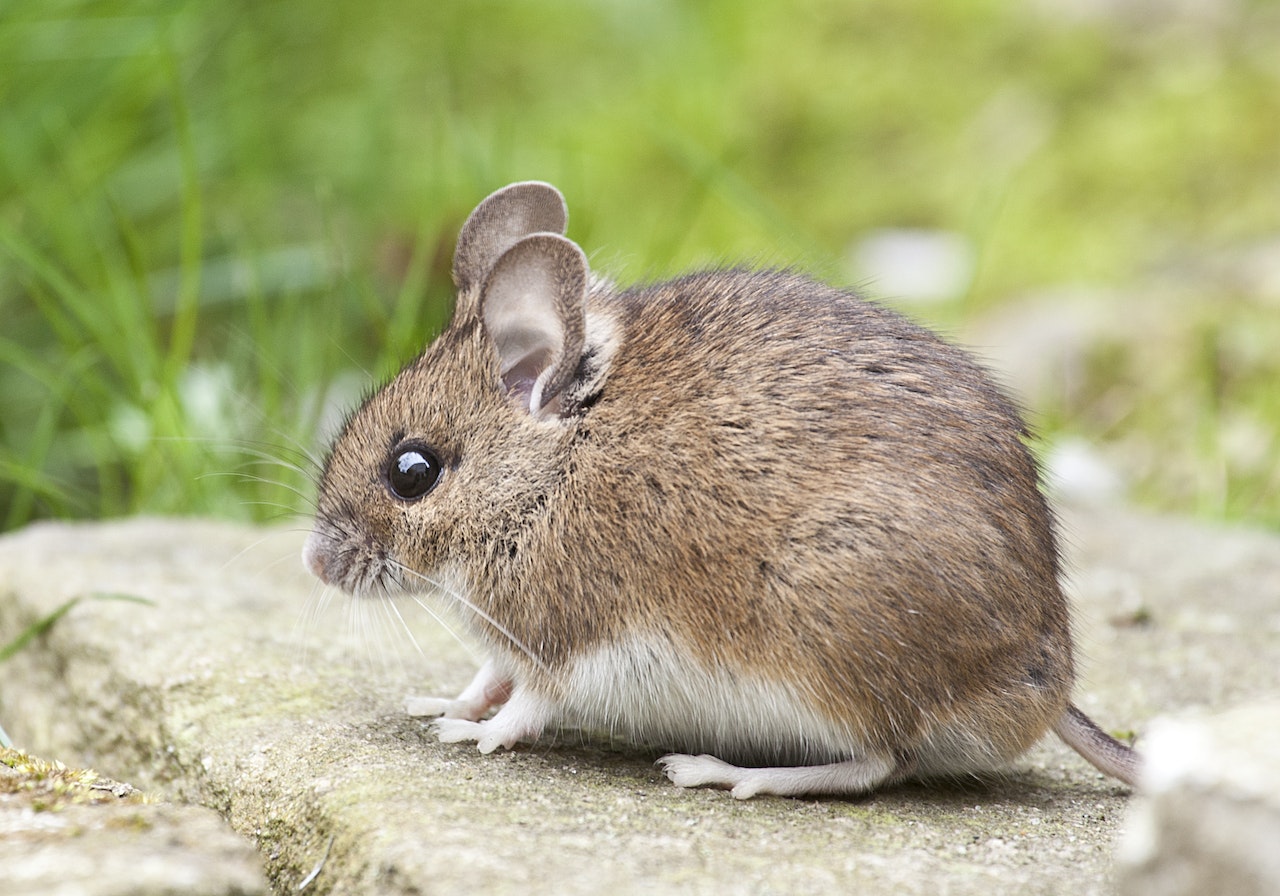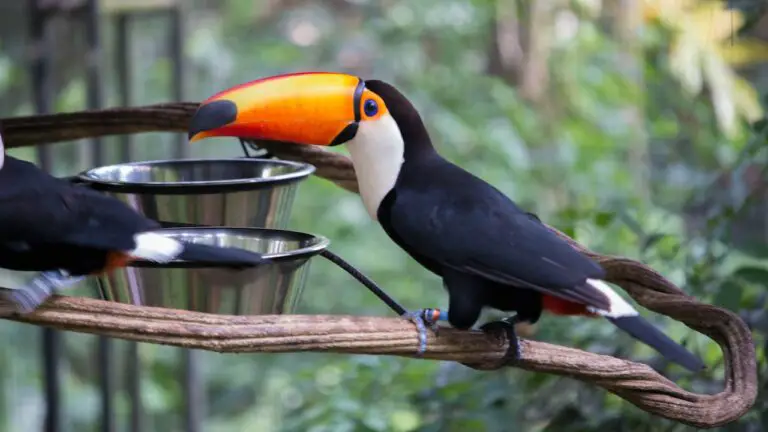Exotic Small Mammal Care Tips – Ultimate Guide for Pet Owners
Exotic small mammals, such as rabbits, guinea pigs, hamsters, and hedgehogs, can make delightful and fascinating pets.
These adorable creatures come in various shapes and sizes, each with their own unique care requirements.
If you’re considering adding an exotic small mammal to your family or you already have one, it’s crucial to understand their specific needs to ensure their well-being and happiness.
In this article, we will provide you with essential tips for the care of exotic small mammals.
Key takeaways:
- Choose the right exotic small mammal based on size, lifespan, and compatibility with other pets.
- Create a safe environment with an appropriate enclosure, bedding, and proper temperature.
- Provide a balanced diet specific to the mammal’s species, including fresh vegetables, fruits, and high-quality pellets.
- Maintain hygiene through regular cage cleaning and grooming.
- Offer exercise and mental stimulation with playtime, interactive toys, and rotation of toys.
- Handle and socialize your mammal gently to build trust and ensure comfort.
- Be aware of common health issues and schedule regular veterinary check-ups.
- Take precautions when traveling with your mammal, such as using suitable carriers and familiar bedding.
- Learn to interpret behavior and body language to understand your mammal’s needs and emotions.
- Use positive reinforcement and enrichment activities for training and bonding.
- Supervise interactions between children and exotic small mammals, emphasizing gentle handling and hygiene.
- Providing proper care requires knowledge, patience, and commitment.
Remember to always prioritize the well-being and happiness of your exotic small mammal by meeting their specific care requirements.
Introduction to Exotic Small Mammal Care
Exotic small mammals require specialized care and attention to thrive in a domestic environment.
By providing them with the right conditions, nutrition, and social interaction, you can ensure they lead healthy and fulfilling lives.
Exotic small mammals are unique and fascinating creatures that can make wonderful additions to your family.
Here are some additional helpful points to consider:
- Research and learn about the specific needs and characteristics of the exotic small mammal you’re interested in before bringing one home.
- Understand the lifespan of the species you choose, as some may live only a few years while others can live up to a decade or more.
- Take into account the level of care required, as some exotic small mammals may need more attention and maintenance than others.
- Consider your own lifestyle and daily routine to ensure you can provide the time, commitment, and resources necessary to care for an exotic small mammal properly.
Choosing the Right Exotic Small Mammal
Selecting the right exotic small mammal for your lifestyle and living situation is essential.
Consider the following factors:
- Size: Determine the appropriate size of the mammal based on the available space in your home. Smaller species like hamsters or gerbils may be more suitable for limited living spaces.
- Lifespan: Research the average lifespan of the species you’re interested in to ensure you can commit to their long-term care. For example, rabbits can live 8 to 12 years, while guinea pigs can live 5 to 7 years.
- Maintenance requirements: Some exotic small mammals may have specific care needs, such as grooming or habitat requirements. Be prepared to meet these requirements.
- Compatibility with other pets: If you have other animals at home, ensure that the chosen species is compatible and won’t pose a risk to each other. Some animals may have predatory instincts towards small mammals.
When choosing an exotic small mammal, take your time, do thorough research, and consider consulting with a reputable breeder or an experienced exotic pet veterinarian for guidance.
Creating a Safe Environment
Ensure your exotic small mammal has a secure and comfortable living space.
Consider the following tips:
- Cage or enclosure: Provide a cage or enclosure that is escape-proof and appropriate for the size of your mammal. Ensure it has enough space for them to move around comfortably. For example, rabbits require larger enclosures with plenty of room to hop.
- Bedding: Use appropriate bedding materials that are safe and comfortable for your mammal. Avoid materials with strong odors or dust, as they can be harmful to their respiratory system.
- Temperature and lighting: Maintain an appropriate temperature range and avoid exposing your mammal to extreme heat or cold. Provide access to natural light or use appropriate lighting sources.
- Hideouts and enrichment: Offer hiding spots and various toys to stimulate their natural instincts. Provide tunnels, chew toys, and objects to climb on to keep them entertained and mentally stimulated.
Regularly inspect the enclosure for any hazards or wear and tear, and make necessary repairs or replacements to ensure the safety and well-being of your mammal.
Proper Nutrition
A well-balanced diet is crucial for the health and longevity of your exotic small mammal.
Consider the following guidelines:
- Species-specific diet: Research the dietary needs of your specific mammal species. Different mammals have different nutritional requirements.
- Hay: Provide a constant supply of fresh hay, such as timothy hay or orchard grass, as a staple food for herbivorous mammals like rabbits and guinea pigs. Hay aids in digestion and keeps their teeth worn down.
- Pellets: Offer high-quality pellets formulated specifically for your mammal’s species. These pellets contain essential nutrients and should make up a portion of their daily diet.
- Fresh vegetables and fruits: Introduce a variety of fresh vegetables and fruits to provide additional nutrients and enrichment. However, be cautious of certain foods that may be toxic to your mammal.
- Limited treats: Treats should be given sparingly and in moderation. Choose healthy options specifically designed for your mammal’s species.
Consult with a veterinarian or exotic pet nutritionist to ensure you’re providing a well-balanced diet that meets your mammal’s specific nutritional needs.
Hygiene and Grooming
Maintaining good hygiene is crucial for preventing health issues in exotic small mammals.
Consider the following tips:
- Cage cleaning: Regularly clean the enclosure to remove waste and soiled bedding. A thorough cleaning should be done at least once a week.
- Litter box: If your exotic small mammal is litter-trained, clean the litter box daily and replace the litter regularly.
- Bathing: Most exotic small mammals do not require frequent baths. However, certain species may benefit from occasional gentle baths using specialized products formulated for small animals.
- Nail trimming: Trim your mammal’s nails regularly to prevent overgrowth, which can cause discomfort or injury.
Regular grooming and hygiene practices will help keep your mammal clean, comfortable, and healthy.
Exercise and Mental Stimulation
Exotic small mammals need opportunities for exercise and mental stimulation to prevent boredom and promote overall well-being.
Consider the following tips:
- Playtime outside the enclosure: Provide a safe and supervised space outside the enclosure where your mammal can explore and exercise under your watchful eye.
- Interactive toys: Offer a variety of toys, such as tunnels, puzzle feeders, and chew toys, to keep them mentally engaged and physically active.
- Rotating toys: Introduce new toys or rotate them periodically to prevent boredom.
Regular exercise and mental stimulation are essential for your mammal’s physical and mental health.
Handling and Socialization
Handle your exotic small mammal gently and regularly to build trust and ensure they are comfortable with human interaction.
Consider the following guidelines:
- Gentle approach: Approach your mammal calmly and avoid sudden movements or loud noises that may startle them.
- Bonding time: Spend regular one-on-one time with your mammal, gently petting them and talking to them in a soothing voice.
- Respect boundaries: Pay attention to your mammal’s body language and respect their need for personal space. Not all mammals enjoy being held or cuddled, so allow them to initiate contact.
Building a strong bond with your mammal through positive and respectful interaction will strengthen your relationship and create a sense of trust.
Common Health Issues
It’s important to be aware of common health issues that may affect exotic small mammals.
Look out for the following signs:
- Changes in appetite or water intake
- Weight loss or gain
- Lethargy or decreased activity
- Changes in stool consistency or appearance
- Respiratory symptoms (sneezing, coughing, discharge)
- Skin abnormalities or fur loss
- Dental problems (overgrown teeth, drooling)
- Eye or nose discharge
If you notice any concerning symptoms, consult with a veterinarian experienced in exotic pet care as soon as possible.
Regular Veterinary Check-ups
Regular veterinary check-ups are crucial to monitor your exotic small mammal’s health and detect any potential issues early on. Consider the following:
- Find a veterinarian with experience in exotic pet care.
- Schedule annual wellness exams or follow the recommended frequency for your mammal’s species.
- Be prepared to provide details about your mammal’s diet, behavior, and any changes in their condition.
Regular veterinary care ensures your mammal’s health is proactively managed and any health concerns are addressed promptly.
Traveling with Exotic Small Mammals
If you need to travel with your exotic small mammal, it’s important to take precautions to ensure their safety and comfort. Consider the following tips:
- Use a secure and well-ventilated carrier designed specifically for small mammals.
- Familiarize your mammal with the carrier before the trip by allowing them to explore and spend time in it.
- Place familiar bedding and some of their favorite toys inside the carrier to provide comfort and reduce stress.
- Avoid exposing your mammal to extreme temperatures or prolonged periods without access to food and water during travel.
Consult with your veterinarian for additional advice and recommendations specific to your mammal’s needs.
Understanding Behavior and Body Language
Understanding your exotic small mammal’s behavior and body language is key to meeting their needs and addressing any potential issues. Consider the following:
- Research and familiarize yourself with the typical behavior and body language of your mammal’s species.
- Observe their behavior in different situations to learn their preferences, signs of contentment, stress, or discomfort.
- Be attentive to changes in behavior, as they may indicate underlying health problems or environmental issues.
By understanding and interpreting your mammal’s behavior, you can ensure their well-being and provide appropriate care.
Training and Enrichment
Exotic small mammals can be trained to respond to cues and commands, which can enhance their safety and strengthen your bond. Consider the following:
- Positive reinforcement: Use positive reinforcement methods, such as treats or praise, to reward desired behaviors.
- Target training: Teach your mammal to touch a target stick or respond to specific cues.
- Enrichment activities: Provide a variety of enrichment activities, such as foraging toys or puzzle feeders, to keep their minds stimulated.
Training and enrichment activities provide mental stimulation and promote the natural instincts of your mammal.
Bonding with Your Exotic Small Mammal
Building a strong bond with your exotic small mammal is essential for their well-being and happiness. Consider the following tips:
- Daily interaction: Spend quality time with your mammal each day, offering treats, gentle petting, and engaging in activities they enjoy.
- Trust-building exercises: Gradually introduce new experiences or handling techniques to build trust and confidence.
- Respect their preferences: Each mammal has its own personality and preferences. Respect their boundaries and provide choices when possible.
By fostering a positive and trusting relationship, you can create a deep bond with your exotic small mammal.
Children and Exotic Small Mammals
If you have children, it’s important to teach them how to interact with exotic small mammals safely and respectfully.
Consider the following:
- Supervision: Always supervise interactions between children and small mammals to prevent accidental harm.
- Gentle handling: Teach children to handle small mammals gently and avoid rough play or squeezing.
- Hygiene education: Educate children about the importance of proper hand hygiene before and after handling small mammals.
By teaching children how to interact responsibly, you can ensure a safe and enjoyable experience for both the child and the small mammal.
Conclusion
Caring for exotic small mammals requires knowledge, dedication, and a commitment to meeting their specific needs.
By following these essential tips, you can provide a nurturing and enriching environment for your exotic small mammal companion.
Remember to prioritize their well-being, seek professional advice when needed, and enjoy the unique and rewarding experience of sharing your life with these remarkable creatures
FAQs
How often should I clean my exotic small mammal’s cage?
It is recommended to clean the cage at least once a week, removing waste and soiled bedding.
Regular spot cleaning is also necessary to maintain cleanliness.
Can I keep different species of small mammals together in the same enclosure?
Not all small mammals are compatible with each other.
Some species may exhibit aggressive behavior towards others.
Researching the compatibility of the species you want to keep together is essential before considering cohabitation.
Are there any specific foods I should avoid feeding my small mammal?
Yes, certain foods can be toxic to small mammals.
For example, chocolate, caffeine, onions, and garlic are harmful and should be avoided.
Research the specific dietary restrictions for your mammal’s species.
How often should I take my exotic small mammal to the veterinarian?
Regular veterinary check-ups are recommended at least once a year for a general wellness examination.
However, certain species may require more frequent visits or have specific health concerns that require closer monitoring.
Can I potty train my small mammal?
Some small mammals, such as rabbits and guinea pigs, can be litter-trained.
With patience and positive reinforcement, it is possible to teach them to use a litter box.
Consult with a veterinarian or animal behaviorist for guidance on litter training your specific species.
Can exotic small mammals be trained like dogs?
Exotic small mammals can be trained to respond to cues and commands, although the extent of their training abilities may vary depending on the species.
How often should I take my exotic small mammal to the vet?
It is recommended to schedule regular veterinary check-ups at least once a year or as advised by your veterinarian.
What are some common signs of illness in exotic small mammals?
Common signs of illness include changes in appetite, behavior, or appearance, such as lethargy, loss of appetite, sneezing, or unusual discharge.
Can I house different species of exotic small mammals together?
It’s generally best to house exotic small mammals of the same species together, as different species may have different care requirements and may not get along.
Are exotic small mammals suitable pets for young children?
Exotic small mammals can be suitable pets for children, but close supervision and education about proper handling and care are crucial.
Peter Stones is the founder of Exotic Pets Place, the leading online resource for exotic pet care information.
With over 10 years of hands-on exotic pet ownership experience, he is deeply passionate about sharing his expertise to help others properly care for their unusual pets.
When he's not writing extensively researched articles or connecting with fellow exotic pet enthusiasts worldwide, you can find Peter at home tending to his own beloved menagerie of exotic animals.






![Exotic Small Mammal Supplies - Top Must-Have Picks [Guide]](https://exoticpetsplace.com/wp-content/uploads/2023/06/Exotic-Small-Mammal-Supplies-Top-Must-Have-Picks-768x458.jpg)
